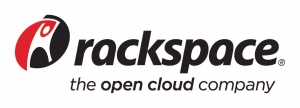Use of cloud services at home, in the workplace and in large enterprises has steadily and significantly increased. Now we are seeing a similar trend with mobile devices and cloud technology. Mobile devices are already accessing a number of cloud services, such as Dropbox, and more third-party applications utilize cloud computing technology. It is only a matter of time until the technology becomes the central force to mobile applications. Where will the future of the mobile cloud lie?
“Mobile platforms are already accessing the cloud for a lot of consumer-based services such as email, social media, online file storage and corporate communications tools. But so far, there are essentially only two players here ñ the individual or consumer, and the consumer cloud service,” said Dan Matthews, chief technology officer with IFS North America. “One of the biggest changes I think we will see in the next year or two is the entry of a third player ñ the corporate back-end system (e.g., corporate ERP, Financials, SCM and other mission-critical systems).”
To the extent that back-end systems are accessible at all from mobile devices today, it is typically from a web-user interface that talks directly to the back-end system by way of a proxy or gateway setup specifically for each back-end system. For most organizations, enabling access to back-end systems this way is a costly and somewhat cumbersome IT project.
“Here the cloud has an important role to play by acting as an intermediary. Essentially, back-end systems will be linked up to the cloud, and from there they can be more easily accessed from mobile devices as well as from other online services. The cloud becomes the hub that connects not just the user and the consumer services, but the user, the corporate back-end systems, and the consumer services.”
Walker Thompson, VP of sales and marketing with restaurant-management solutions company WhenToManage, sees the mobile cloud as a way to create a new kind of workflow. Right now, he pointed out, the cloud means he can access his employees and they can access him. Data is shareable, where it was once trapped, or in siloes.
“The cloud means organizational improvements, where I can alter the idea of roles at the click of a button so that store A can report to store B. It means connections, collaboration and competition,” Thompson said. “As mobile devices evolve (faster, smaller, more powerful), I see us using the cloud, but based on shared connections. In other words, devices can store and then share, but with complete strangers — think: WiFi, but for cloud. I could see that you have data and could access, with your permission of course.”
However, for the mobile cloud to truly be a major player in the way we work and live, there are some issues that need to be addressed, such as the way we access cloud services.
“Currently, access of cloud services is based almost entirely on a user/password combination. This combination served as inspiration to the phishing industry, and its subsidiary branches of bank account, credit card and PII (Personally Identifiable Information) sales,” explained Edy Almer, resident, Wave Systems, a company that helps organizations manage computer security. “When data that used to be stored on local machines started moving to the cloud, the access question was compounded multiple-fold. We need much better access control, or we will hear many more stories about people losing access to their entire life ñ bank accounts, personal email, social network profiles, photos and digital media.”
In the end, what the cloud is most likely to do is change the way we think about storage on our devices and instead think about storage in the cloud. “I wonder if devices will now come with less storage, on the hard drive, but be better wired for access to data,” said Thompson. “Where once, mobile meant scanning barcodes, soon it will mean servers will be supplied a mobile device to do their job, and devices that were once built primarily for consumers will have a larger role to play in business.”
Sue Poremba blogs for Rackspace Hosting. Rackspace Hosting is the service leader in cloud computing, and a founder of OpenStack, an open source cloud operating system. The San Antonio-based company provides Fanatical Support to its customers and partners, across a portfolio of IT services, including Managed Hosting and Cloud Computing.
